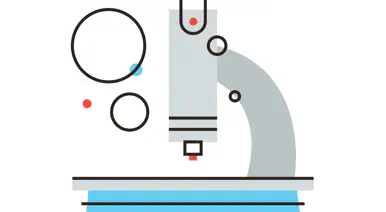The Truth about Job Satisfaction and Friendships at Work
The keys to thriving at work are not just based on ambition, smarts, and playing office politics. According to recent research, how people succeed or fail can be based on the support and involvement they have with friends in the workplace.
Abraham Lincoln once wrote that “the better part of one’s life consists of his friendships.” More than a century later, maybe it’s time employers tune into that message.
Employers have held onto a long-running theme that employee relationships, whether they’re between co-workers or with management, should be discouraged, and that friendships are better left outside the office walls. In fact, a leading survey organization showed that nearly one-third of 80,000 managers and leaders believe in the statement that, at work, “familiarity breeds contempt.”
And, the fear that friendly employees will ban together, creating a mutinous atmosphere of boss-bashing and downright insubordination is also shouted down by statistics. Recent polls have turned that theory of fear on its head, and championed the fact that quality friendships at work have a direct link to job satisfaction and engagement. According to research statistics, employee satisfaction skyrockets nearly 50% when a worker develops a close relationship on the job.
“Having friends at work benefits not only employees, but impacts the organization as well,” said Casey Mulqueen, Ph.D., Director of Research for a Colorado-based workplace performance company. “Work serves a social purpose for most people; we enjoy socializing and simply spending time with people whom we like and trust. In addition to making time at work more enjoyable, it also impacts people’s commitment to their jobs and colleagues, which positively impacts effort and performance.”
The numbers show that Mulqueen is right on target. Employee engagement is positively altered when friendships are factored in. When an employee has someone at their place of work considered a “best friend,” one of the biggest winners is the company. For the 30% of workers who say they have a best friend at work, 56% are engaged, 33% not engaged, and 11% are actively disengaged, the two words most feared by any employer.
In contrast, research shows that among the remaining 70% of employees who did not have a best friend at work, only 8% were engaged, 63% were not engaged, and 29% were actively disengaged.
“Research has shown that having a good relationship with co-workers is an integral aspect of employee engagement,” said Mulqueen. “By measuring the level of camaraderie that exists in a company, we can determine how much of an impact this has on overall employee satisfaction. Some surveys ask employees if they have a good friend at work, and research has shown that this single question is an important indicator of employee engagement.”
Surveys, of course, cost money, but are miniscule when compared to the cost of actively disengaged employees. Estimates show that the lower productivity attributed by actively disengaged workers costs the U.S. economy about $300 billion per year.
Researchers have found the same results in Singapore. The country has the highest standard of living in Asia, and has the same issues as Western nations when employees become disengaged. With just 6% actively engaged, 82% not engaged, and 12% actively disengaged, Singapore has a serious problem that researchers estimate is costing its economy $6 billion annually. At the top of the list in ways to improve the trend was an active campaign for employers to encourage workers to form friendships with each other.
The quality of friendships at work is intertwined with job satisfaction, but having a work buddy doesn’t come without its drawbacks. When there’s no self-control or buffer zone, friends can be a major distraction on the job, taking up valuable time when there’s work to be done. Jealousy can also rear its ugly head between friends on the job, whether there’s a promotion on the line or the two are competing for the affections of the new guy or gal in the office. And that sort of intimate relationship comes with a whole other set of combustible baggage.
“Developing friendships at work has its risks,” said John Henning, Director of Business Development at a California-based work solutions group. “Since there is now a vested interest in the relationship, conflicts of interest can occur, and if things go sour in the relationship, the working relationship will more than likely suffer as well. This can lead to the exact opposite in terms of decreased trust, political vendettas, and constant opposition.”
Henning says the key to developing long-term relationships on the job which are mutually supportive and healthy is much like the advice given for intimate relationships – take it slow.
Dr. Jan West, Ph.D.
Organizational Psychologist
National Business Research Institute




























 By submitting this form you agree to our
By submitting this form you agree to our